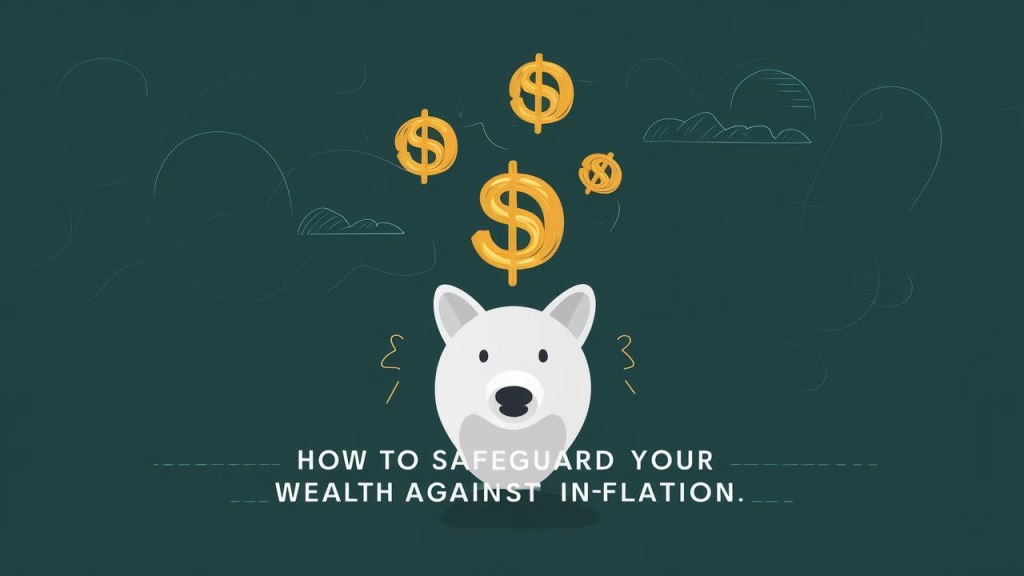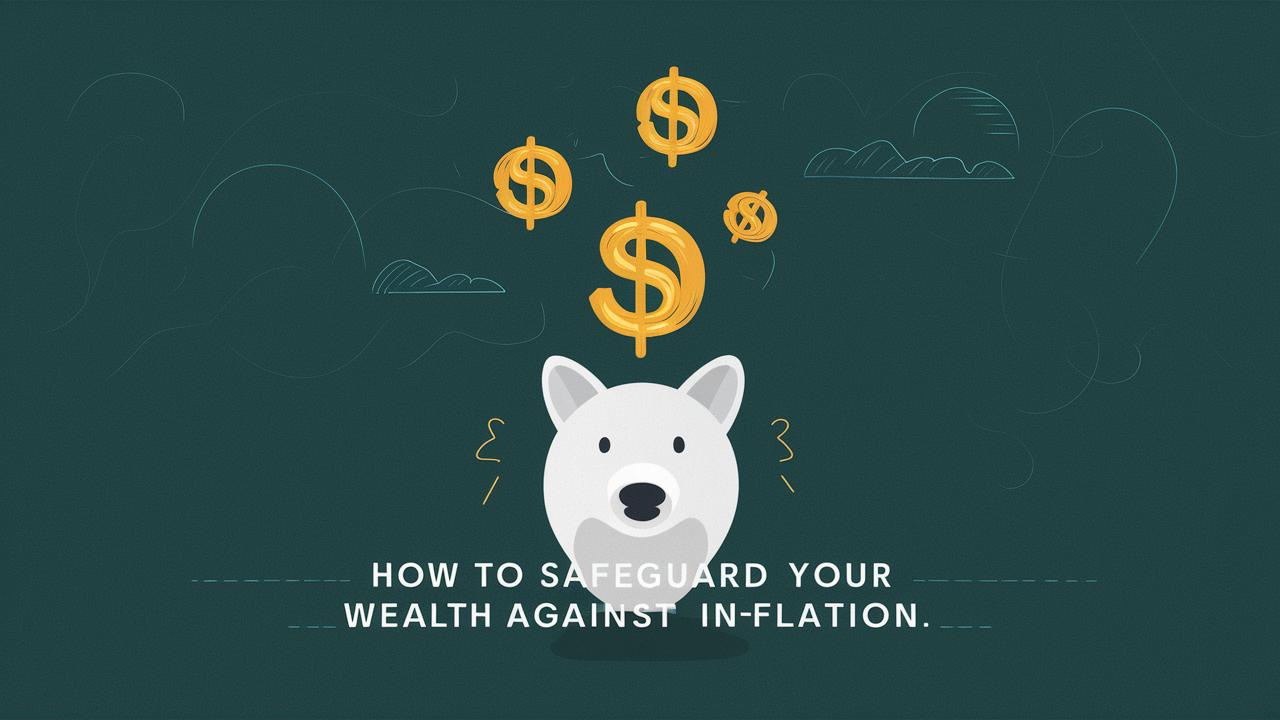Are there specific financial instruments designed to hedge against inflation?
Inflation,the invisible force that slowly erodes the purchasing power of your money,is an essential consideration for anyone looking to protect their wealth.Understanding how to manage and mitigate the impacts of inflation is crucial to preserving your financial wellbeing. In this guide, we’ll explore strategies and insights on how to safeguard your wealth against inflation, offering you the tools to secure a prosperous financial future.
Understanding inflation
At its core, inflation is the rate at which the general level of prices for goods and services rises, causing purchasing power to fall. Central banks attempt to limit inflation, and avoid deflation, to keep the economy running smoothly. But why is the effect of inflation meaningful for your wealth?
- Erosion of purchasing power: As inflation increases, each unit of currency buys fewer goods and services.
- Impact on savings: Fixed-interest savings accounts typically offer returns that may not keep pace with inflation, resulting in a net loss over time.
- Effect on investments: Inflation can also affect the real returns on investments, particularly those that do not adjust with inflation.
strategies to Safeguard your Wealth Against Inflation
Diversify Your Investments
Diversification is a time-tested strategy used to manage risk and reduce the volatility of an asset’s returns. By spreading your investments across various asset classes, you cushion against poor performance in a single investment type.
Consider the following diversified investment options:
- Stocks: Equities have historically generated returns that outpace inflation over the long term. Investing in a well-diversified stock portfolio can be an effective hedge against inflation.
- Bonds: While conventional fixed-rate bonds may suffer during inflationary periods, inflation-linked bonds, such as Treasury Inflation-Protected Securities (TIPS) in the U.S.,can offer a hedge.
- Real Estate: Frequently enough viewed as a tangible asset, real estate can provide rental income and appreciate over time, helping to combat inflation.
- Commodities: investing in commodities, such as gold and silver, can protect against inflation since these assets often hold their value or appreciate when inflation rises.
- International investments: Diversifying into foreign markets could provide additional protection if domestic markets are underperforming due to inflation.
Utilize Real Assets
real assets, such as commodities and real estate, frequently enough perform well during inflationary periods. These tangible assets tend to maintain their value or even appreciate when the cost of living increases.
- Gold: Known historically as a store of value, gold tends to rise in value during times of high inflation.
- Real Estate Investment Trusts (REITs): Investing in REITs allows you to gain exposure to real estate without the need for direct property ownership, offering a hedge against inflation.
Invest in Inflation-Protected Securities
Purchasing inflation-protected securities can provide a straightforward method to preserve your wealth against inflation’s eroding effects. These securities provide returns adjusted for inflation, ensuring that the real return remains constant.
- Treasury Inflation-Protected Securities (TIPS): In the U.S., TIPS offer principal value adjusted for inflation and are backed by the government.
- Inflation-linked bonds: Many countries offer inflation-indexed bonds that may suit investors seeking to protect against inflation.
Maintain a Balanced Portfolio
The importance of maintaining a balanced portfolio cannot be overstated, especially in periods of economic uncertainty. By including a mix of asset classes in your portfolio, you are better positioned to withstand inflationary pressures.
- Growth investments: Equities and real estate typically offer potential for capital appreciation.
- income investments: Fixed-interest and dividend-paying stocks often provide steady income.
- Defensive investments: Allocating a portion of your portfolio to cash and fixed-interest investments can offer stability.
Control Debt
Debt management is crucial when considering inflation.Rising inflation can lead to higher interest rates, increasing the cost of debt. Thus, keeping liabilities in check is essential:
- Pay off bad debt: Focus on eliminating high-interest debt, such as credit cards and personal loans.
- Fix interest rates: Consider fixing interest rates on long-term loans to protect against rate hikes.
Additional tips to Combat Inflation
Build an Emergency Fund
An emergency fund serves as a financial safety net during unforeseen events, such as job loss or economic downturns. Ensure that your emergency savings remain accessible and in a secure, inflation-resistant account.
Continuously Educate Yourself
Stay informed about economic trends and potential future inflationary periods. By educating yourself on financial markets and monitoring inflation indicators, you can make proactive decisions to protect your wealth.
Adopt a Long-term Perspective
Investing for the long term can alleviate some of the pressures of short-term inflation fluctuations. A patient and disciplined approach allows investments to potentially recover from temporary downturns.
Consider Professional Advice
Working with a financial advisor can offer personalized strategies tailored to your financial goals and risk tolerance. Professionals can provide insights on optimizing your portfolio for inflation resilience.
Conclusion
Safeguarding your wealth against inflation requires careful planning, diversified investments, and strategic risk management. By exploring options like diversifying your portfolio, investing in real assets, and utilizing inflation-protected securities, you can create a robust financial strategy designed to endure rising inflation pressures.
As you move forward, remember that financial planning is a continuous process. Regularly review your investment portfolio, adjust strategies when necessary, and stay informed on economic trends. With proactive steps and informed decisions, you can preserve your hard-earned wealth and secure a prosperous financial future, nonetheless of inflationary challenges.


